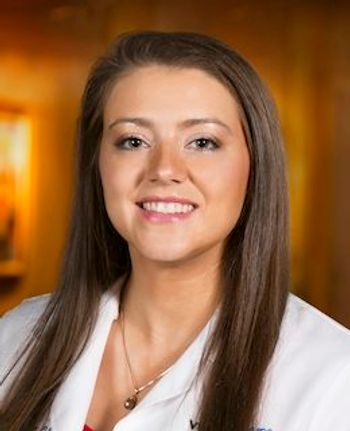
Co-managing cataract surgery has benefits
Optometrists not yet involved in co-managing cataract surgery patients should consider adding this dimension to their practice because it has multiple benefits for all parties involved, Loretta Ng, OD, said recently.
Key Points
Honolulu-Optometrists not yet involved in co-managing cataract surgery patients should consider adding this dimension to their practice because it has multiple benefits for all parties involved, Loretta Ng, OD, said recently.
Benefits of co-managing patients
"Co-management of cataract surgery patients creates a new revenue stream and also helps with patient retention. Sometimes patients are uncertain of whom to see after cataract surgery, and may return to the surgeon for their routine eye exam because they didn't know they can go back to their optometrist for the same care," she said.
"The practice of optometry becomes more fascinating when I see a greater variety of patients, and care of post-cataract patients becomes particularly rewarding when you see how ecstatic they are about their vision rejuvenation," Dr. Ng said.
Optometrists who want to become involved in cataract surgery co-management may find the biggest challenge in getting started is finding an ophthalmologist(s) with whom they feel they will have a successful working relationship.
"Optometrists seeing patients who may experience problems postoperatively must feel comfortable picking up the phone to consult with the surgeon anytime," she said.
Select a surgeon
When getting started, optometrists need to identify surgeons within their community that they like to work with. A good place to begin is with surgeons who have been supportive of optometry, because they are more likely to be interested in and comfortable with co-management, especially if they are familiar with LASIK/PRK co-management, Dr. Ng said.
"Of course you will also want to focus on surgeons who have a record for achieving excellent outcomes," she added.
Once a potential co-managing surgeon has been found, the next step is to develop or adopt an existing co-management protocol. The optometrist or optometry office staff will need to become familiar with the billing process associated with cataract surgery co-management, including the additional layers relevant to premium IOL implantation.
"In the case of premium IOLs, the optometry office needs to submit a claim to the patient's insurance company for the covered portion of the cataract surgery and bill the uncovered premium portion to the patient directly," Dr. Ng explained.
Education is key
Next, the optometrist needs to become thoroughly educated about the expanding array of IOL options and the potential post-operative complications associated with cataract surgery.
"Until fairly recently, all patients who underwent cataract surgery received a monofocal IOL. Now there is wonderful technology for correcting astigmatism and presbyopia. Optometrists co-managing cataract surgery patients need to become familiar with the different implant options so they can make appropriate recommendation as to which IOL would best suit their patient," she said.
For presbyopia correction, there are different multifocal IOLs and an accommodating IOL that differ in efficacy at providing spectacle-free vision at near, intermediate, and far distances.
Newsletter
Want more insights like this? Subscribe to Optometry Times and get clinical pearls and practice tips delivered straight to your inbox.


















































.png)


